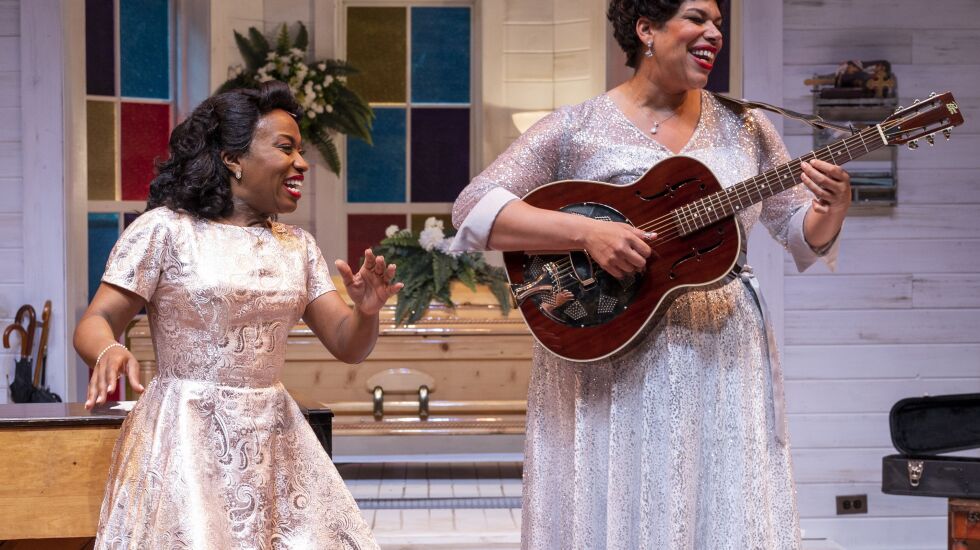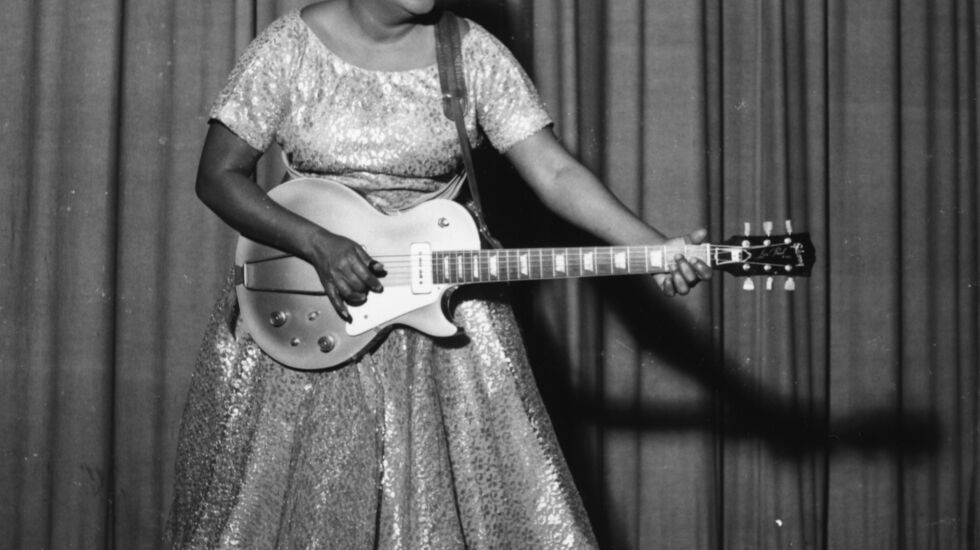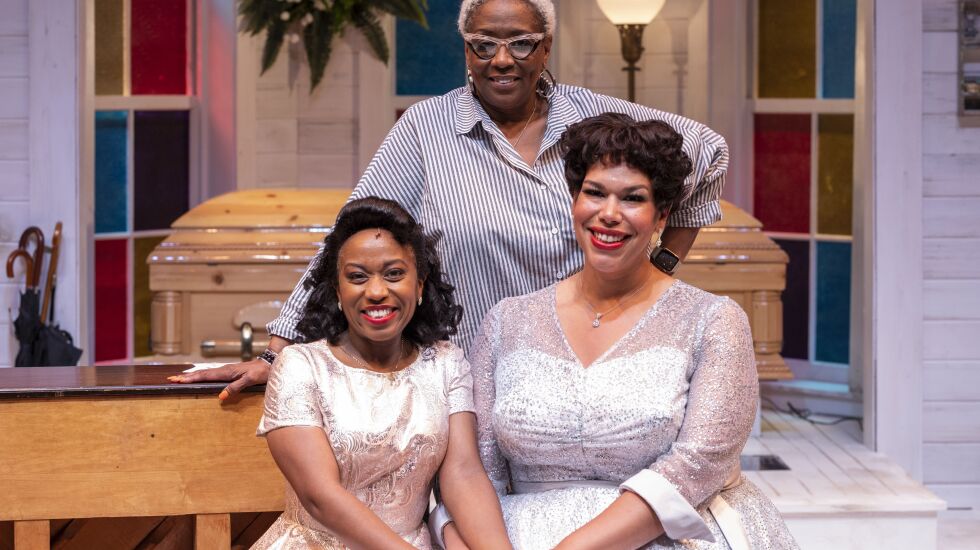
There is a solid case to be made that Sister Rosetta Tharpe invented rock ’n’ roll. Listen to her innovative guitar work and her melding of gospel with secular sounds, and her influence on countless future musicians and singers becomes obvious.
From Chuck Berry and Little Richard to Eric Clapton and Jeff Beck to Elvis Presley, Johnny Cash and the Staple Singers, each admitted to being influenced by Tharpe, a musical trailblazer. Yet she remains a performer many people have never heard of, whose rich history deserves a closer look.
Playwright George Brant’s play with music, “Marie & Rosetta,” now having its Chicago area premiere at Northlight Theatre, delves into a chapter in Tharpe’s life when she mentored a young singer named Marie Knight.
The two-person play, set during a rehearsal session as the singers prepare for a tour, is directed by E. Faye Butler and features Alexis J. Roston as Knight and Bethany Thomas as Tharpe.
Butler says Brant’s play, in addition to showcasing Tharpe’s music, is “magically structured. It’s a journey in which Rosetta constantly teaches us lessons about the world, about the inside of the music business, about life on the road for Black acts.”
In the mid-1940s, Tharpe saw Knight performing on a bill with her rival, Mahalia Jackson, and immediately realized the potential of adding Knight to her own tour. But instead of backup singer status, Knight was treated as an equal, thus creating a powerful singing duo that would have crossover hits from gospel to the R&B charts.

Brant admits he was one of the crowd who had never heard of Tharpe. He first came across her via a song, “Sister Rosetta Goes Before Us,” on Robert Plant and Alison Krauss’ album “Raising Sand.”
“I became a little obsessed with that song and went down the rabbit hole of discovering Rosetta’s legacy,” Brant recalls. But it was videos of Tharpe performing, he says, that really opened his eyes.
“It was kind of a surreal experience. She’s wearing these prim-and-proper white dresses, but she is playing this electric guitar in a way that’s very much what we would associate with the guitar gods of the ’60s and ’70s.”

At a time when few women played guitar, Tharpe, whose sound set her apart from her contemporaries (she made her electric guitar sing with blues and jazz improvisations), was one of the first commercially successful gospel singers.
In his research, Brant, the author of several plays including “Grounded” (Anne Hathaway starred in the New York Public Theater staging), came across Tharpe’s connection to Knight and found his way into what he felt was an interesting chapter on which to build a play with music.
“I find their music intoxicating and just so full of joy,” he says, adding, “Rosetta always treated Marie as an equal and that intrigued me: to be able to portray a genuine mentorship that wasn’t competitive but rather two people working together and allowing each other’s greatest gifts to shine.”
Tharpe was raised in the Church of God in Christ, a conservative Pentecostal denomination, and she walked a fine line between church music and the secular sounds that pushed her music into crossover status. When she was shunned by the church, she would play jazz clubs including the Cotton Club.
“The church thought what Rosetta was doing was demonic, satanic,” Butler says. Yet Tharpe knew her heart remained in the church. “She realized she wasn’t doing anything wrong and went back to what she knew [gospel] and to, as the Bible says, ‘make a joyful noise.’ ”
Thomas and Roston, powerhouse singers in their own right, both have experience at portraying iconic singers in one-woman shows: Roston recently as Billie Holiday in Mercury Theater’s “Lady Day at Emerson’s Bar & Grill,” and Thomas in Northlight’s “Songs for Nobodies,” where she also portrayed Holiday plus Judy Garland, Patsy Cline, Edith Piaf and Maria Callas.
Songs in “Marie & Rosetta” include “Strange Things Happen Every Day” (sometimes cited as the first rock ’n’ roll song), “This Train,” “Rock Me in the Cradle of Your Love,” “I Looked Down the Line” and more.
Roston says she is enjoying “the era and energy of these vivacious and amazing pioneers of music” in a show that “portrays how music brings us together.”
Thomas adds: “The play captures the joy of collaboration and connection between these two women. Rosetta’s take on gospel music is all about joy, and the energy in this play is good. It’s going to rock.”







